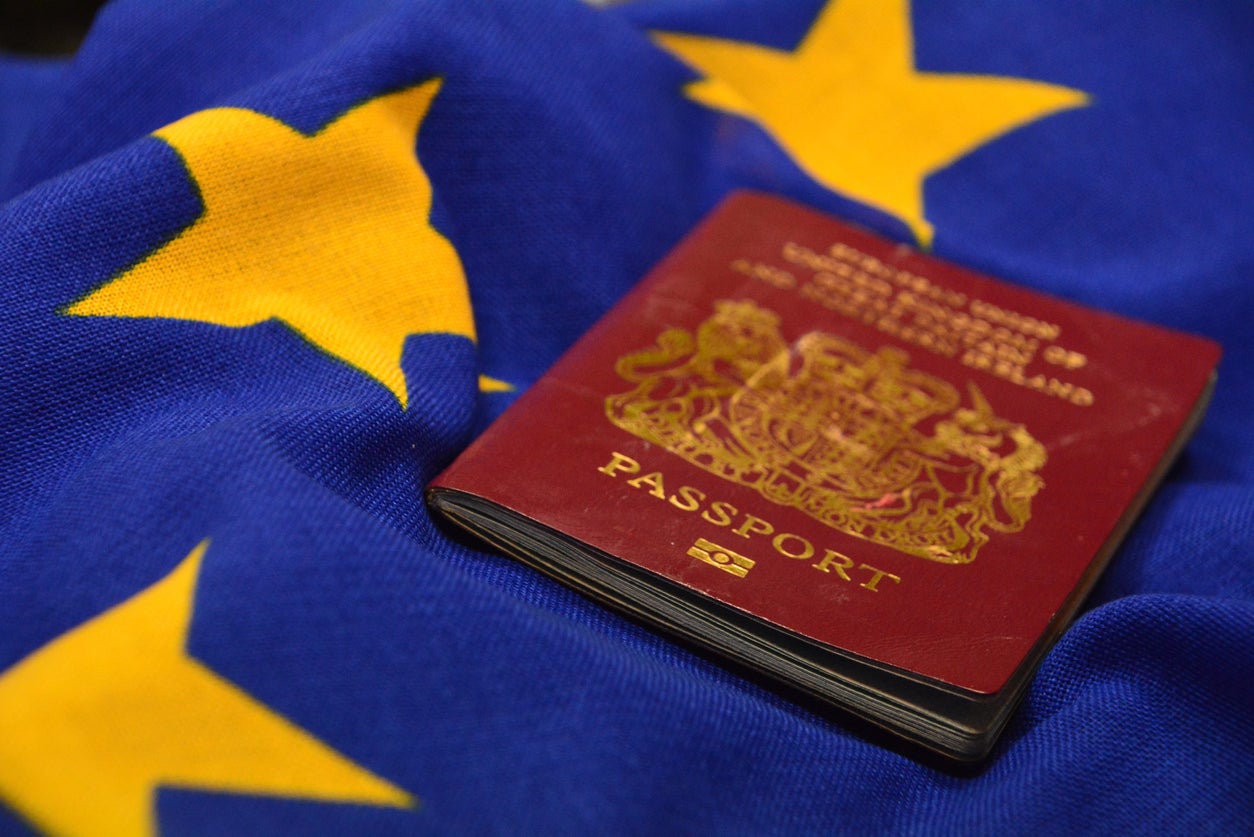My new black Brexit passport has arrived – I wonder how long before I need an EU one again
It’s not beyond the realms of possibility that a new PM might start looking for ways to reforge broken links, writes Andrew Woodcock


This week brought an odd moment for me, as my new black Brexit passport popped through the letterbox, a physical reminder of the fact that the endless weird fever-dream that has been British politics over the past five years is about to have consequences in real life.
Deal or no deal, my passport tells me that from 1 January – just 13 weeks away – I’ll be standing in a different queue as I go through arrivals, I’ll need to allow time for delays next time I drive through Kent, and I really ought to get round to working out whether I also need new travel insurance, health cover and a different mobile phone package for any continental holidays I might be allowed to take in 2021.
But it also got me thinking about how long it will be before I next have a passport with the words “European Union” on the front? Since 31 January, the subject has become a taboo in Westminster.
Labour has – probably wisely, given the divided views of its support base – taken a vow of silence on the rights and wrongs of EU membership. Under Sir Keir Starmer the message is that Brexit is over, there is no longer a battle between Leave and Remain, and the job of the opposition now is to scrutinise the government’s delivery of its promises.
More surprisingly, even the Liberal Democrats are trying to edge away from the issue. New leader Sir Ed Davey has made clear he won’t be campaigning to rejoin, and he had to be blocked by his own activists from downgrading it from an “objective” to an “option on the table” in official party policy.
It all seems quite sensible, given the clear public distaste for refighting weary battles. But there is some whispering in the corridors that backing Rejoin might actually be a canny move in the long term.
The problem for Brexiteers is that their cherished project delivers all its downsides (queues, paperwork, job losses, tariffs, higher prices, shortages of staff in farms and care homes and maybe even food on supermarket shelves) early in the process, while any benefits (new trade opportunities, freedom to subsidise favoured businesses, control over immigration rules) could take years to have an impact that would be noticed by voters.
Meanwhile, once we arrive in the new post-Brexit reality, ministers can expect an immediate clamour from business for the return of the best elements of the world we’ve left, in terms of smoother trading relations with our nearest neighbours, mutual recognition of standards and qualifications, joint projects and so on.
All of this will cut little ice with the current administration, whose political careers are founded on Vote Leave. But with their futures not looking as secure as they were only months ago, the question is what would a successor do?
Imagine a new Tory PM, pro-business, pro-growth and desperate to put some rockets into an economy ravaged by Covid-19, but not ideologically shackled to the Brexit cause. Imagine him looking at opinion polls, which currently find 56 per cent of voters think Brexit was a mistake, a figure which can be expected to rise as the consequences become clear.
It’s not beyond the realms of possibility that this new PM might start looking for ways to reforge broken links, and that as the years go by the UK could gradually return, one step at a time, into the EU structures we have just shaken off. At which point the complaint will be heard that “we pay but have no say”, and re-entry won’t seem so far-fetched after all.
I’m pretty sure that my next passport in 2030 will not be an EU one. But the one after that, in 2040? I wouldn’t be so certain.
Yours,
Andrew Woodcock
Political editor
Join our commenting forum
Join thought-provoking conversations, follow other Independent readers and see their replies
Comments



Bookmark popover
Removed from bookmarks